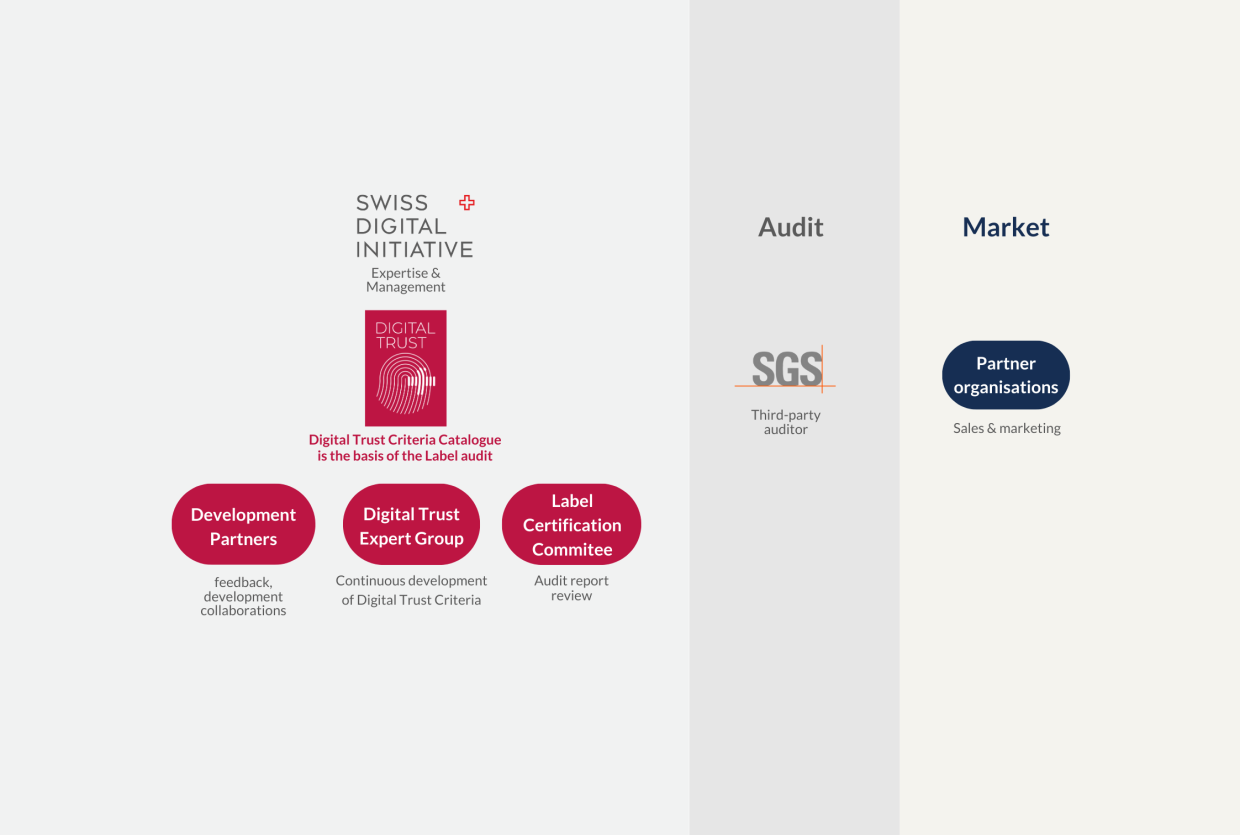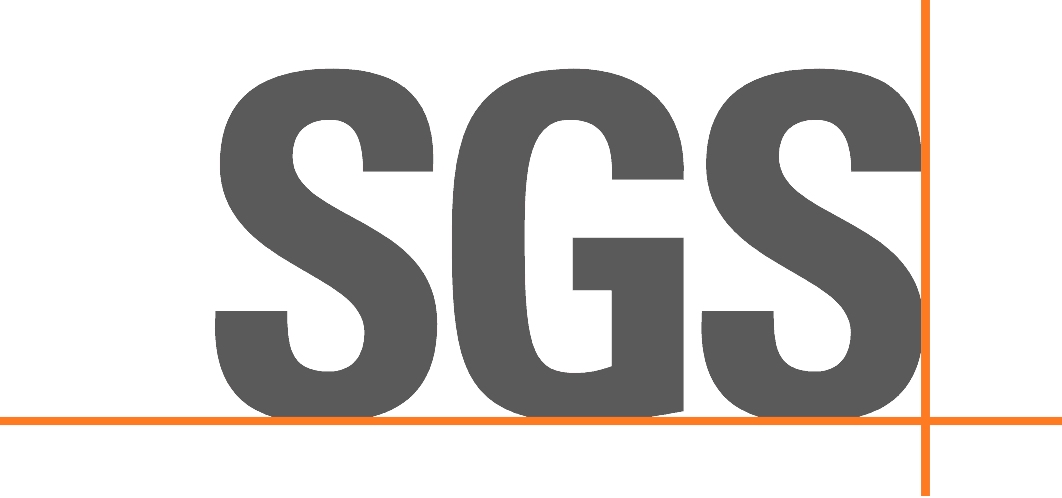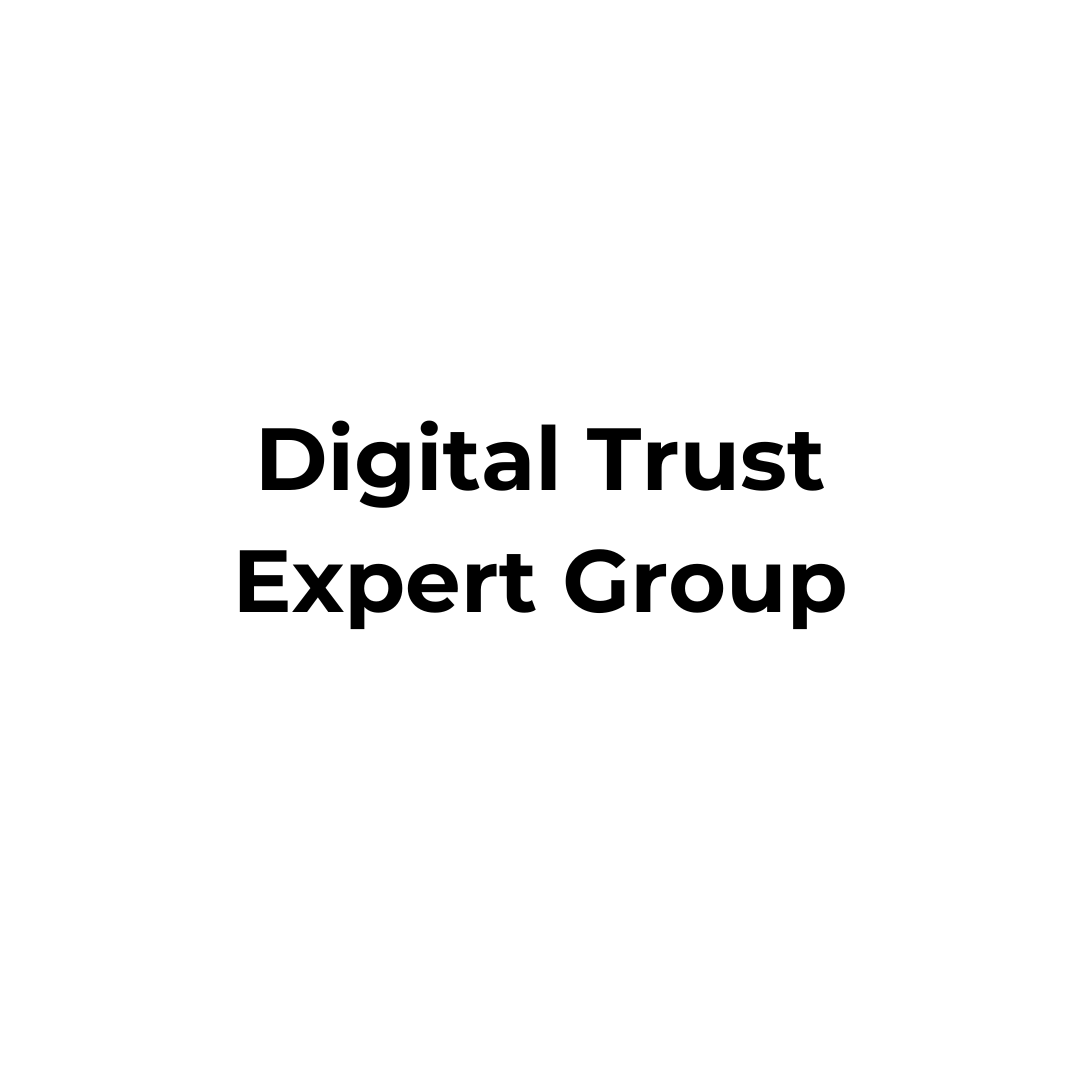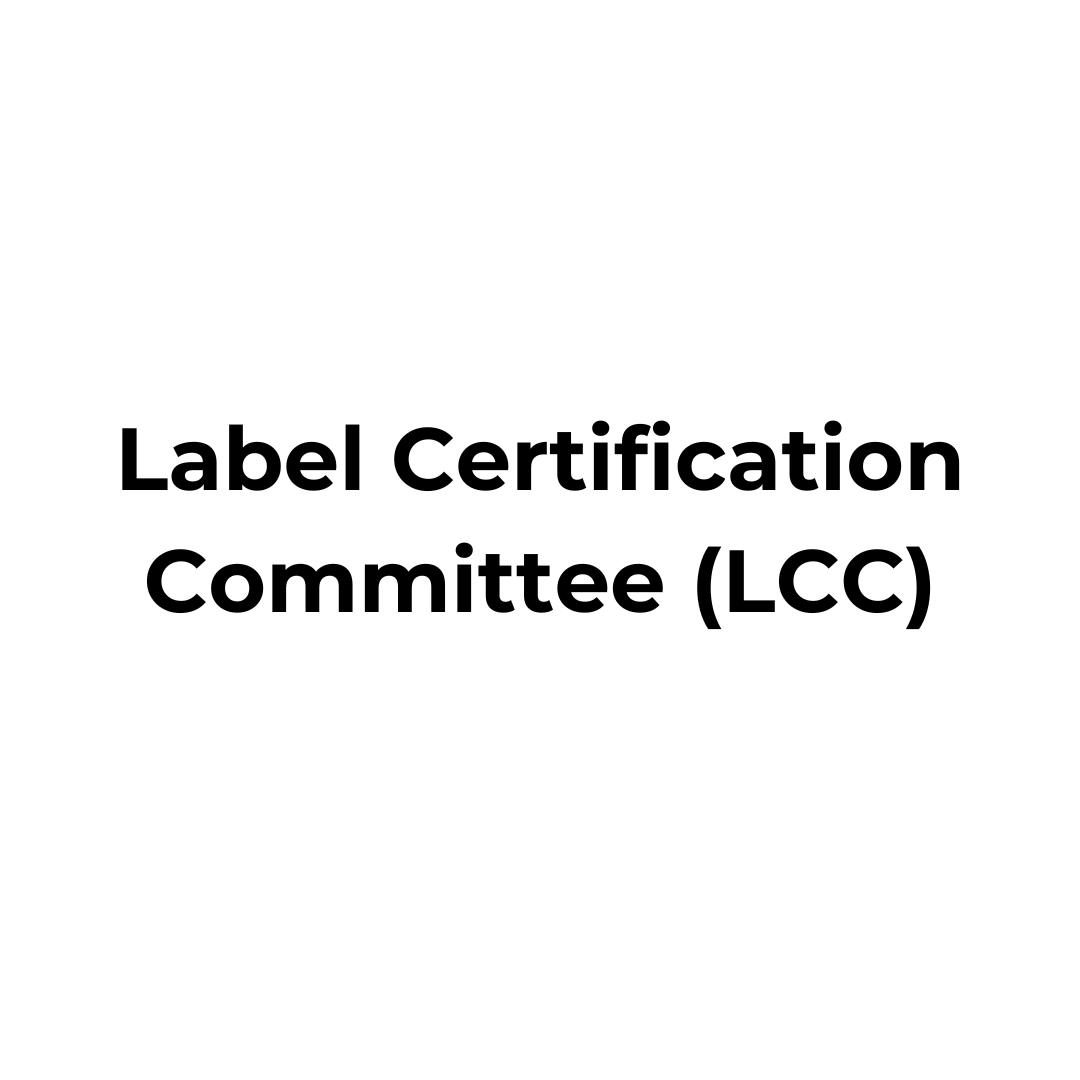
Commitment to digital responsibility!
With the Digital Trust Label, we’re putting trust and transparency back into tech. Created in Switzerland, the Digital Trust Label is the first of its kind anywhere in the world. The Digital Trust Label empowers users everywhere to feel safe and secure when they use digital services. Also, it gives organisations a way to convey their commitment to credibility. With an intuitive, streamlined layout and plain, jargon-free language, the Digital Trust Label builds confidence by increasing transparency where it matters. It means we all benefit from the advantages of technological advances – now and in the future.
Governance & Development

Swiss Digital Initiative
Swiss Digital Initiative is a non-profit foundation headquartered in Geneva. We manage the Digital Trust Label and are responsible for the expertise behind the label and the final decision to award the label, in collaboration with the Board. The nomination is done after a third-party audit performed by SGS. If you are interested in obtaining the Digital Trust Label, please contact our Digital Trust Label Partners and Collaborators.

SGS
SGS has been procured as an exclusive auditing partner to ensure high audit quality and consistency across markets. Audit costs are therefore fixed based on complexity and provided transparently upfront as part of the Label fee.
The Digital Trust Label audit is based on a detailed version of the Digital Trust Criteria Catalogue. The criteria represent a clear starting point in defining what Digital Trust is and what an organisation should do to maintain it. The catalogue was developed through a 2-year collaborative/co-creative efforts with various stakeholders.

Digital Trust Expert Group
The Digital Trust Expert Group, formerly called the Label Expert Committee, brings together experts from various backgrounds and stakeholder groups to provide their input on the Digital Trust Label Criteria. The group is responsible for ensuring that the Criteria Catalogue reflects the latest technological and regulatory developments. To this end, the group creates a yearly report, and the latest edition can be found here.
** The Expert Group is recruited through an open call.
Members of the Digital Expert Group 2023

Santiago Barragan
Legal advisor in Data protection and new Technologies

Xavier Bays
Head of Consulting & Associate, Swiss-SDI

Marcel Blattner
Principal Data Scientist and Team Leader, ETH Swiss Data Science Center

Nikki Böhler
Director, Opendata.ch

Ilir Fetai
Machine Perception, SBB & Lecturer FFHS

Roberta Fischli
Political scientist, PhD Candidate, University of St. Gallen

Maximilian Groth
Co-Founder & CEO, Decentriq

Rahel Gubser
Researcher Digital Health & Medical Data Science

Alexandre Jotterand
CIPP/E, CIPM, attorney-at-law at id est avocats

Michael Kende
Senior Fellow and Visiting Lecturer at the Geneva Graduate Institute, and a Senior Advisor at Analysys Mason

Rodolphe Koller
Editor in Chief, ICTjournal

Diego Kuonen
CEO, Statoo Consulting & Professor of Data Science, GSEM, University of Geneva

Martin Ochoa
Senior Researcher and Lecturer, ETHZ

Mitchell Scherr
CEO, Assured Cyber Protection

Manouchehr Shamsrizi
Co-Founder, gamelab.berlin Humboldt-Universität’s Cluster of Excellence and Co-Founder RetroBrain R&D

Martin Steiger
Partner Steiger Legal, Co-Founder Datenschutzpartner

Leila Toplic
Head of Emerging Technologies Initiative, NetHope

Tuulia Timonen
Head of PSC Service Excellence, Posti Group

Charlotte van Ooijen
Associate Director Digital Government and Data, The Lisbon Council for Economic Competitiveness and Social Renewal

Label Certification Committee (LCC)
The Label Certification Committee is an independent group that evaluates the final audit reports from SGS and recommends the Digital Trust Label award to the SDI board members.
Members of the LCC 2023

Deepak Banssal
Director, Meaning Quotient GmbH

Dr. Nitin Kumar
Data Consulting Partner, Meaning Quotient GmbH

Philippe Schwab
Information and Security Specialist